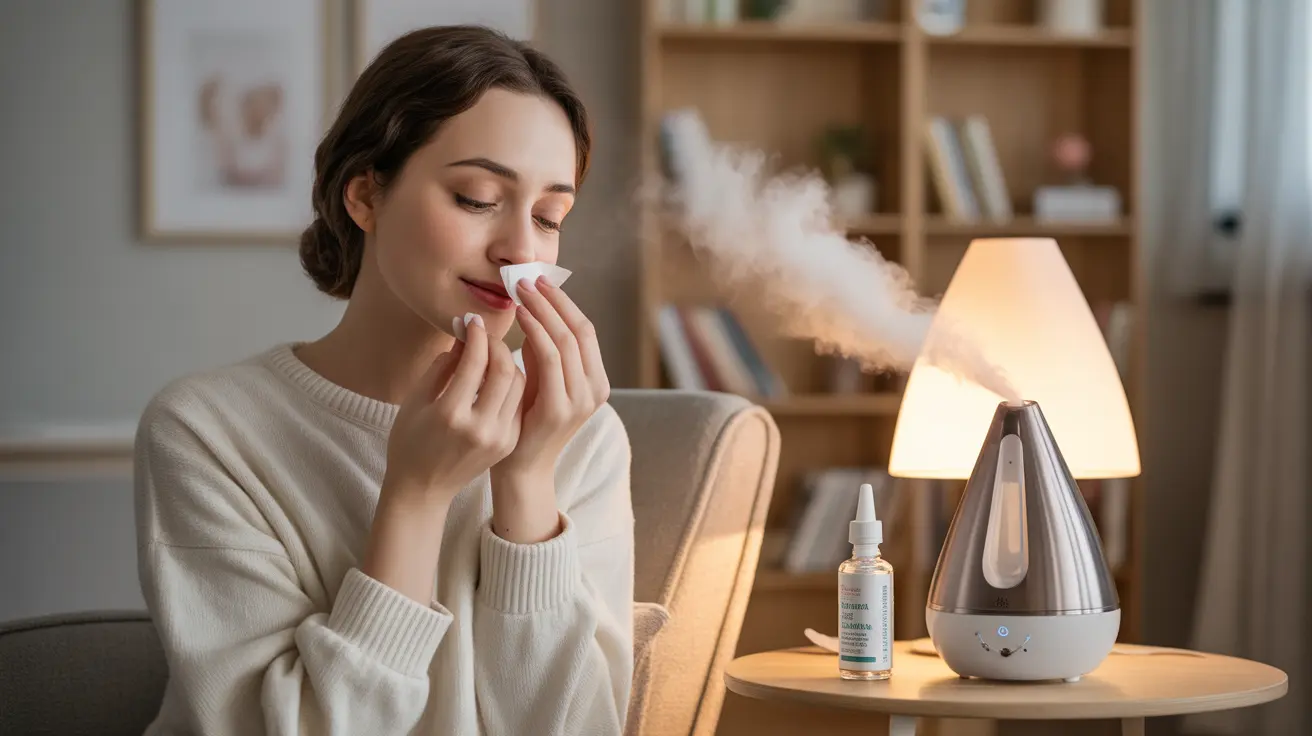When dealing with COVID-19, it's crucial to understand how various symptoms present themselves and what they might mean for your health. While fever and cough are widely recognized symptoms, many people experience milder signs like a runny nose or develop related issues such as chapped lips during their illness.
This comprehensive guide explores the connection between these symptoms and COVID-19, helping you understand when to be concerned and how to manage these conditions effectively at home.
The Connection Between COVID-19 and Runny Nose
A runny nose (rhinorrhea) has become increasingly recognized as a potential symptom of COVID-19, particularly with newer variants. While not as common as some other symptoms, research shows that approximately 4-6% of COVID-19 patients may experience nasal congestion and rhinorrhea as early symptoms.
Why COVID-19 Can Cause Nasal Symptoms
- Triggering inflammation in the nasal tissues
- Increasing mucus production
- Affecting the normal function of nasal membranes
- Disrupting the body's normal immune response
Understanding Chapped Lips During COVID-19
While chapped lips aren't a direct symptom of COVID-19, they can occur as a secondary effect of the illness. Several factors during COVID-19 infection can contribute to lip dryness:
- Increased mouth breathing due to nasal congestion
- Dehydration from fever
- Reduced fluid intake when feeling unwell
- Side effects of medications used during treatment
Distinguishing COVID-19 from Other Conditions
It's important to differentiate COVID-19 symptoms from those of allergies, common colds, or flu. Key distinguishing factors include:
- Timing and progression of symptoms
- Presence of other COVID-specific symptoms
- Duration of symptoms
- Response to typical allergy or cold medications
Managing Symptoms at Home
Treating a Runny Nose
Several home remedies can help manage a COVID-related runny nose:
- Using saline nasal sprays
- Staying well-hydrated
- Using a humidifier
- Getting adequate rest
- Taking over-the-counter decongestants (after consulting healthcare provider)
Caring for Chapped Lips
To address lip dryness during COVID-19:
- Apply lip balm regularly
- Stay hydrated
- Use a humidifier
- Avoid licking your lips
- Choose gentle, fragrance-free products
When to Seek Medical Attention
While mild symptoms can often be managed at home, certain situations warrant medical attention:
- Difficulty breathing
- Persistent high fever
- Severe dehydration
- Worsening symptoms after initial improvement
- Development of new, severe symptoms
Frequently Asked Questions
Can a runny nose be a symptom of COVID-19 and how common is it?
Yes, a runny nose can be a symptom of COVID-19, though it's less common than other symptoms like fever and cough. Studies indicate that approximately 4-6% of COVID-19 patients experience this symptom, particularly with newer variants.
How can I treat or manage a runny nose caused by COVID-19 at home?
A COVID-related runny nose can be managed through saline nasal sprays, staying hydrated, using a humidifier, and getting plenty of rest. Over-the-counter decongestants may help but should only be used after consulting with a healthcare provider.
Are chapped lips a direct symptom of COVID-19 or related to the illness in other ways?
Chapped lips are not a direct symptom of COVID-19 but can occur as a secondary effect due to factors like dehydration, mouth breathing from congestion, and reduced fluid intake during illness.
How do symptoms like a runny nose with COVID-19 differ from those caused by colds or allergies?
COVID-19 symptoms typically develop more suddenly than allergies and may be accompanied by specific indicators like loss of taste or smell, fever, and body aches. Unlike seasonal allergies, COVID-19 symptoms often progress and may include additional respiratory symptoms.
When should I seek medical help if I have a runny nose or other mild COVID-19 symptoms?
Seek medical attention if you experience difficulty breathing, persistent high fever, severe dehydration, or if mild symptoms worsen over time. Also consult healthcare providers if you're in a high-risk group or develop new, severe symptoms.




